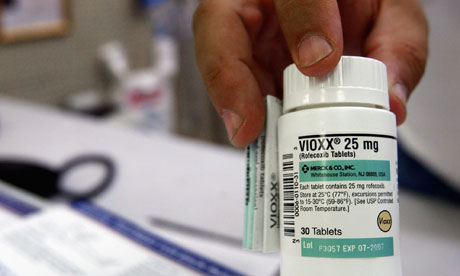The proposals aim to stamp out the shady business of "guest authorship", where research papers written by pharmaceutical companies or industry-sponsored medical writers are passed off as the work of influential, independent academics.
In the worst cases, doctors receive payments or other incentives to endorse articles without being familiar with the studies or data the reports describe. Often, the articles are biased and do not carry the names of the real authors.
The medical profession has long been troubled by guest authorship and ghostwriting, but the issue has become harder to ignore in recent years as the extent to which drugs companies use the tactic as a marketing tool has become clear.
Articles drafted by industry with minimal involvement from guest authors have been published in leading journals on hormone replacement therapy (HRT), Vioxx (an anti-inflammatory drug that was withdrawn amid safety fears), Neurontin (used in pain relief), antidepressants, and the combination diet drug, Fen-phen (also withdrawn for safety reasons).
While the practice is not currently considered to be illegal, it is widely regarded as unethical and potentially harmful to patients because it skews the information that appears in medical journals.
Writing in the journal, PLoS Medicine, Simon Stern and Trudo Lemmens, who are law professors at the University of Toronto, warn that measures brought in by publishers and professional bodies to curb guest authorship and ghostwriting have so far failed to tackle the problem. They call for more severe sanctions against those involved, even when the articles are scientifically accurate.
"It's a prostitution of their academic standing. And it undermines the integrity of the entire academic publication system," Lemmens said.
"A guest author's claim for credit of an article written by someone else constitutes legal fraud, and may give rise to claims that could be pursued in a class action," the authors write. The same offence could also support claims of "fraud on court" when drugs companies rely on ghostwritten articles in court cases. Stern and Lemmens argue that pharmaceutical companies and the medical writers they sponsor may also incur liability for soliciting and facilitating fraud.
In 2009, a trove of documents relating to ghostwriting and guest authorship were released following a request in court by PLoS Medicine and the New York Times. The papers revealed that Wyeth, a pharmaceutical company, had used ghostwriters to prepare 26 medical articles that emphasised the benefits and downplayed the risks of taking HRT for conditions such as heart disease and dementia. Government funded studies on the therapy were later stopped after the treatment was shown to raise the risk of breast cancer, heart disease and stroke.
Adriane Fugh-Berman, a doctor at Georgetown University Medical Centre in Washington DC, who was an expert witness for the women who brought the civil action against Wyeth, said the Canadian lawyers had put forward a "provocative proposal for a serious problem".
"Ghostwriting distorts the scientific literature on drugs and other therapies, and changes prescribing decisions in a way that may be harmful to patients. It is thus a threat to public health. Academic institutions give lip service to being against ghostwriting but no academic has been sanctioned. Fear of legal action really might deter the practice, which is euphemistically termed 'editorial assistance'," she told the Guardian.
Some journals, including PLoS Medicine, have called for bans on guest authors and warn that unacknowledged ghostwriting will be retracted if discovered after publication, with the academics being reported to their institutions.
Fiona Godlee, editor of the British Medical Journal, said the practice continues to be a problem in the medical literature.
"Guest authorship and ghostwriting is absolutely unacceptable and we have been saying this for a long time. It is misleading, a form of fraud, and it would be good to see much stiffer penalites and legal liabilities for people who involve themselves in this," she said.
"The benefits of being a guest author are still substantial. You get a piece of work under your name that you didn't have to bother writing, the company involved will push to get it published in a high-profile journal, and visibility, promotion and all sorts of things come your way, not to mention international travel and speaking at conferences."
• This article was amended on 3 August 2011 to give the correct spelling of Trudo Lemmens
